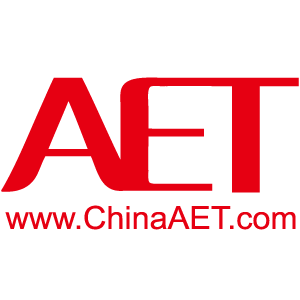融入翻譯記憶庫的法律領(lǐng)域神經(jīng)機器翻譯方法*
電子技術(shù)應用
曾文顥1,2,張勇丙1,2,余正濤1,2,賴華1,2
(1.昆明理工大學 信息工程與自動化學院,云南 昆明 650500; 2.昆明理工大學 云南省人工智能重點實驗室,云南 昆明 650500)
摘要: 面向法律領(lǐng)域的神經(jīng)機器翻譯對于合同文本翻譯等應用場景具有重要價值。由于法律領(lǐng)域雙語對齊語料稀缺,翻譯效果還不理想。針對該問題,目前有效的方法是融入翻譯記憶或翻譯模版等外部信息,但法律領(lǐng)域的文本多具有固定的表達結(jié)構(gòu)且用詞準確規(guī)范,在翻譯記憶庫中同時利用翻譯結(jié)構(gòu)信息和語義信息能夠進一步提升法律領(lǐng)域翻譯性能。基于此,提出一種融入翻譯記憶庫的法律領(lǐng)域機器翻譯方法。提出了一種新的法律領(lǐng)域翻譯記憶庫,首先基于語義和結(jié)構(gòu)信息的相似性訓練跨語言檢索模型以充分利用單語數(shù)據(jù),然后從翻譯記憶庫中檢索與輸入源句相關(guān)的一組翻譯記憶和翻譯模版,進而引導翻譯模型生成目標句子。實驗表明,在MHLAW數(shù)據(jù)集上,提出的方法可以使譯文較基線模型提升1.28個BLEU點。
中圖分類號:TP391 文獻標志碼:A DOI: 10.16157/j.issn.0258-7998.233887
中文引用格式: 曾文顥,張勇丙,余正濤,等. 融入翻譯記憶庫的法律領(lǐng)域神經(jīng)機器翻譯方法[J]. 電子技術(shù)應用,2023,49(9):39-45.
英文引用格式: Zeng Wenhao,Zhang Yongbing,Yu Zhengtao,et al. Legal neural machine translation based on translation memory[J]. Application of Electronic Technique,2023,49(9):39-45.
中文引用格式: 曾文顥,張勇丙,余正濤,等. 融入翻譯記憶庫的法律領(lǐng)域神經(jīng)機器翻譯方法[J]. 電子技術(shù)應用,2023,49(9):39-45.
英文引用格式: Zeng Wenhao,Zhang Yongbing,Yu Zhengtao,et al. Legal neural machine translation based on translation memory[J]. Application of Electronic Technique,2023,49(9):39-45.
Legal neural machine translation based on translation memory
Zeng Wenhao1,2,Zhang Yongbing1,2,Yu Zhengtao1,2,Lai Hua1,2
(1.Faculty of Information Engineering and Automation,Kunming University of Science and Technology,Kunming 650500,China; 2.Yunnan Key Laboratory of Artificial Intelligence,Kunming University of Science and Technology,Kunming 650500,China)
Abstract: Neural machine translation for the legal domain is of great value for application scenarios such as contract text translation. Due to the scarcity of bilingual corpora in the legal domain, the machine translation performance is still not satisfactory. A practical method to address this problem is to integrate prior knowledge such as translation memory(TM) or templates. However, texts in the legal domain mostly have fixed expression structures and precise wording specifications. The performance of translation in the legal field can be further improved by using both sentence structure information and semantic information in the translation memory. Based on this, this paper proposes a new framework that uses monolingual TM and performs learnable memory retrieval in a cross-language manner. Firstly, this monolingual translation memories contain translation memory and translation template, which can provide richer external knowledge to the model. Secondly, the retrieval model and the translation model can be jointly optimized. Experiments on the MHLAW dataset show that this model surpasses baseline models up to 1.28 BLEU points.
Key words : neural machine translation;semantic information;structure information;translation memory;translation template
0 引言
近年來,隨著深度學習的發(fā)展,神經(jīng)機器翻譯(NMT)在大量翻譯任務上取得了巨大成功[1],面向法律領(lǐng)域的機器翻譯也得到了領(lǐng)域內(nèi)學者的大量關(guān)注。法律領(lǐng)域機器翻譯在法律條款、合同文本和涉外公證文書等實際場景中也具有重要的應用價值。
目前融入外部信息是提升特定領(lǐng)域機器翻譯的有效途徑[2-5]。相較于傳統(tǒng)的生成模型,引入外部信息可以讓模型獲得訓練數(shù)據(jù)中沒有的附加信息,降低文本生成的難度,減少對訓練數(shù)據(jù)的依賴。現(xiàn)有的融入外部信息的方法主要分為三類:基于雙語詞典、基于翻譯記憶和基于翻譯模版。
基于雙語詞典的方法[6]用于解決低頻詞和術(shù)語翻譯等問題,利用雙語詞典作為外部資源輸入神經(jīng)網(wǎng)絡結(jié)構(gòu)。Arthur等人[7]提出一種通過使用離散詞典來增強神經(jīng)機器翻譯系統(tǒng)的方法,以解決低頻次翻譯錯誤問題,這些詞典可以有效地編碼這些低頻單詞的翻譯。
本文詳細內(nèi)容請下載:http://forexkbc.com/resource/share/2000005635
作者信息:
曾文顥1,2,張勇丙1,2,余正濤1,2,賴華1,2
(1.昆明理工大學 信息工程與自動化學院,云南 昆明 650500;2.昆明理工大學 云南省人工智能重點實驗室,云南 昆明 650500)

此內(nèi)容為AET網(wǎng)站原創(chuàng),未經(jīng)授權(quán)禁止轉(zhuǎn)載。

